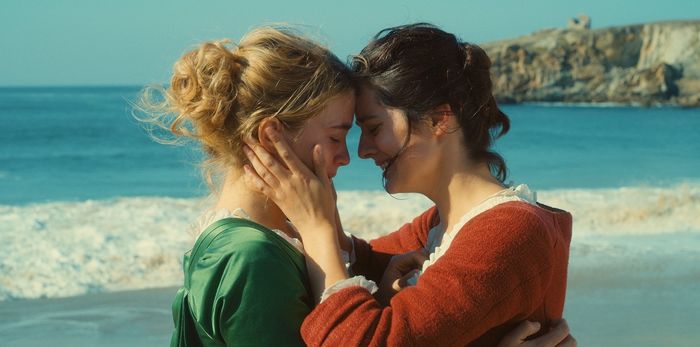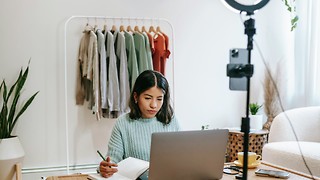The future of film and cinema in a socially distant world
In her article, Tilda Butterworth reflects on the future of film and cinema during the times of pandemic.
Back in March, everyone was dealing with the impending crisis in extremely different ways. I had just arrived home from university, and after a few days spent in my bedroom mourning Easter term I was desperate for a new project to fill my time. After some contemplation I put out a call on Instagram for submissions to a collaborative quarantine video, which I titled ‘Holding on to Each Other’. The theme for contributions was simple: works of creative self-expression relating to community, solidarity and solace. Over the course of the following month I collected artwork and hopeful stories from friends all over the world, and even from a few strangers who somehow found their way to the post. The editing process was long, but the response to the completed video made it worth all of the work.
Despite the contributors being scattered across the globe, many of them strangers to each other, we were united in our collaboration. The video will always stand as an honest and authentic response to what we were separately living through in that moment – a collective processing akin to a time capsule of the experience of March 2020. Collaborative videos like this come alongside other expressions of community spirit in the past months, such as the applause for the NHS, the rainbows displayed in windows, and the local mutual aid WhatsApp groups. It strikes me that this is a period of human history that will often be portrayed in the cinema of the future, similarly to how films such as Pride (dir. Matthew Warchus, 2014) show groups uniting for a cause, except with fewer nights out and group hugs. I think we can expect to see many films in the coming decades which will tell the stories of this global crisis, with a bittersweet mixture of pain at the tragedies which have been suffered and nostalgia for this unexpected sense of unity.
"Currently, production of almost all films and series in the UK has been shut down, but alternatives have appeared in their place"
But in the meantime, how can we expect the film and television industries to evolve to accommodate the current necessity of social distancing? Making the video project gave me a small insight into how films and TV series could be created with social distancing measures, and how, with a professional crew and actors, it is a legitimate possibility that entire feature films could be made remotely. Currently, production of almost all films and series in the UK has been shut down, but alternatives have appeared in their place. Jeff Pope’s Isolation Stories was created in only a month and consists of four 15-minute episodes which explore family drama in lockdown. It was filmed by the actors and their family members, with directors remotely overseeing the process. The series is both moving and funny, and is testament to what can be achieved using the internet. It also speaks to how reactive film and television can be to current affairs, in a situation where it doesn’t necessarily have to take months or years to produce content.
In terms of socially distanced filming in the future, so far it has been proposed that actors do their own makeup, arrange their own transport, and bring their own crockery and cutlery to set. Beyond that, outdoor filming is preferred, small rooms should be avoided in the filming process, and green screens used where possible to avoid having too many people in one space. It has also been suggested that, in the case of regular television series such as soaps, storylines will be scaled back, meaning fewer episodes and fewer characters in each one. Intimate scenes, of course, will be an impossibility for the time being. There is a concern that the lack of testing resources in the UK will lead to reluctance on the part of production companies to resume shooting, because they don’t want to deal with the financial consequences of a potential outbreak on set.
Along with the obvious negative aspects of remote or socially distanced production come several positives. Filmmaking on a smaller scale allows us to give an insight into parts of life that were previously considered banal but now hold some kind of magic – like this video of dancers from the Paris Opera, which shows the talented professionals in a domestic setting rather than on a stage, in a way that feels somehow novel.
"Endless resources are not available, and people can no longer travel long distances for shoots or easily hire professional equipment, so they have to think outside the box"
Many people have turned to some form of amateur filmmaking in lockdown: filming web series, creating YouTube channels, or even making TikToks. It’s easy to see these platforms as trivial or even cringey, and it’s true that there are elements of all social media that are not conducive to the production of high quality content, but I have recently been surprised and happy to witness people using the internet in creative ways that they may not have considered before.
Despite its obvious drawbacks for creatives whose livelihoods have been put on hold, lockdown has also served as an equaliser in that it puts filmmakers on a more level playing field. Endless resources are not available, and people can no longer travel long distances for shoots or easily hire professional equipment, so they have to think outside the box. Most have been left with what they have close at hand – a phone or a camcorder, and an internet connection of varying stability – and more free time has allowed them to explore the potential of these resources. For instance, a student filmmaker Sayna Fardaraghi made this eerie short on her phone while her equipment was stuck in her university accommodation.
On a larger scale, for production companies and people who already have a place in the industry, business doesn’t stop. Bidding for film rights, writing scripts, casting and promotion are still continuing remotely – evidenced by the activity surrounding BBC Three’s Normal People, whose actors have been dealing with their enormous success and newfound fame from the confinement of their flats, and whose interviews for The Late Show, Buzzfeed and more have been filmed by webcam.
There is absolutely a future in these new forms of filmmaking for as long as they are necessary, and hopefully in the aftermath of this huge upheaval people will continue to think more creatively about the production of film and television.
 Interviews / You don’t need to peak at Cambridge, says Robin Harding31 December 2025
Interviews / You don’t need to peak at Cambridge, says Robin Harding31 December 2025 Comment / What happened to men at Cambridge?31 December 2025
Comment / What happened to men at Cambridge?31 December 2025 News / Unions protest handling of redundancies at Epidemiology Unit30 December 2025
News / Unions protest handling of redundancies at Epidemiology Unit30 December 2025 News / Varsity’s biggest stories of 202531 December 2025
News / Varsity’s biggest stories of 202531 December 2025 News / Downing investigates ‘mysterious’ underground burial vault 29 December 2025
News / Downing investigates ‘mysterious’ underground burial vault 29 December 2025










